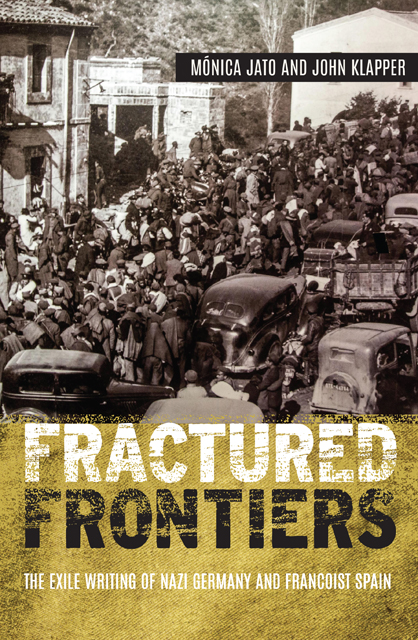1 - Cultural Contexts
Published online by Cambridge University Press: 18 January 2023
Summary
Acomparative study of literary responses to dictatorship in two very different settings requires a degree of caution. While similarities between the dynamics of inner and territorial exile abound in the German and Spanish situations, it is important to recognize the distinct political and historical backgrounds and to acknowledge the at times contrasting cultural contexts in which German and Spanish exiles on both sides of the divide operated. This chapter seeks to place German and Spanish exilic writing in their respective historical and cultural contexts. In the first section, in particular, we plot the very different backgrounds to the Nazi and Francoist dictatorships and to literary-cultural responses to them. In subsequent sections the focus is more on the parallels that can be discerned in the two national fissures, the similar reputational fate over the years of both inner exiles in Germany and Spain and their territorial counterparts, the shared concern with cultural hegemony, and the restrictive environments created by systems of censorship in each setting.
Cultural Crises and False Caesuras?
With regard to Germany, Hans Dieter Schäfer talks of a moralizing fixation on National Socialism that has resulted in critics overemphasizing the political date boundaries of 1933 and 1945. These served 1950s and 1960s scholarship well in establishing the literary-historical categories of “postwar literature,” “exile literature,” and “inner emigration” but are questionable as absolute caesuras since they make it difficult to differentiate in literary-historical terms between streams of writing in the Nazi period and to establish a clear overarching view of the epoch beyond these dates. Instead, 1930 and 1960 are proposed as the date brackets for a literary period characterized by aesthetic distinctness and stylistic consistency. For present purposes it is especially significant that the year 1930 has been established as a key one for German writing, since it marked a period when a sense of crisis had begun to shape writers’ view of both humanity and the world.
Weimar society, especially Berlin, had seen a veritable explosion in scientific, intellectual, and cultural activity, with major contributions to the fields of literature, cabaret, music, dance, art, architecture, and film. Artistic practice was, in general, highly politicized and characterized by a left-wing aversion to bourgeois social values and Prussian authoritarianism, as well as a tendency toward iconoclasm, experimentation, and rejection of conservative cultural norms.
- Type
- Chapter
- Information
- Fractured FrontiersThe Exile Writing of Nazi Germany and Francoist Spain, pp. 15 - 45Publisher: Boydell & BrewerPrint publication year: 2020



